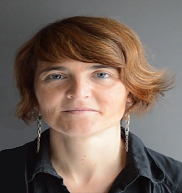
Mounica Mir
University Barcelona SpainTitle: Sensors and actuators for permeability analysis and tunning in blood brain barrier on a chip
Abstract:
In this work an alternative animal-free in vitro model has been developed for a low cost, easy to work system that simulate the main drug access to the brain, the Blood Brain Barrier (BBB), by means of an Organ-on-a-chip (OoC) platform. The permeability of the BBB is the main issue to deal when a drug needs to cross this barrier. Moreover, in many neurodegenerative diseases (NDDs) the BBB permeability is strongly affected by vascular and inflammatory problems derived from the NDD. These changes on permeability need to be included in the BBB on a chip to correctly mimic an affected BBB by a specific NDD. In the proposed BBB-oC a novel technology combining sensor and actuator was integrated. The sensor permits to characterize in real time the barrier permeability by Transepithelial/transendothelial electrical resistance (TEER). Moreover, the actuators were parallelly patterned on each sides of the barrier to electrically tuning the barrier permeability. A simulation study was performed to assure the feasibility of this technology. The BBB-oC was fabricated and the cells seeded combining a 3D co-culture of human astrocytes and pericytes inside the hydrogel in one channel, to simulate the brain interstitial fluid (ISF) and then endothelial cells in the parallel channel to growth up the vascular barrier generated by these cells. Confocal fluorescence microscope was used in combination with immunostaining to characterize the formed cells barrier and to show the correct development of tight junctions between the adjacent brain endothelial cells.
Biography:
Dr. Mònica Mir received the Degree in Chemistry from University Rovira i Virgili, Spain in 1998. In 2006 she received her PhD in biotechnology in the same University. She realized different predoctoral stages and a postdoctoral position in Max Planck Institute for Polymer Research, Germany. Since 2008, she joins the Institute for Bioengineering of Catalonia (IBEC), Spain as Senior CIBER researcher, combined with her teaching as associate professor in the University of Barcelona. Her main research motivation is related to the improvement of healthcare diagnosis. She is the co-author of 50 publications with an h-index 15 and 1242 citations.
A PHP Error was encountered
Severity: Notice
Message: Undefined index: script
Filename: blocks/footer.php
Line Number: 395
Backtrace:
File: /var/www/html/application/modules/webinars/views/blocks/footer.php
Line: 395
Function: _error_handler
File: /var/www/html/application/third_party/MX/Loader.php
Line: 364
Function: include
File: /var/www/html/application/third_party/MX/Loader.php
Line: 306
Function: _ci_load
File: /var/www/html/application/core/MY_Loader.php
Line: 53
Function: view
File: /var/www/html/application/modules/webinars/controllers/Tentative_program.php
Line: 43
Function: template2
File: /var/www/html/index.php
Line: 317
Function: require_once
